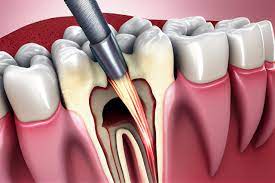Inflammatory nerve conditions, also known as neuritis or neuropathy, involve the swelling or irritation of nerves, causing pain, discomfort, and sometimes dysfunction. Recognizing and addressing these conditions early can help prevent long-term damage. This article will explore how to recognize symptoms, causes, and available treatment options for Nerve Filling with Inflammation conditions.
What Are Inflammatory Nerve Conditions?
Inflammatory nerve conditions occur when nerves become inflamed, often due to injury, infection, or autoimmune issues. This inflammation can disrupt the normal function of the nervous system and cause a variety of symptoms.
- Nerve Damage: Inflammation can cause nerve damage, making it difficult for the nerves to transmit signals to the brain and other parts of the body.
- Pain and Discomfort: The most common symptom of nerve inflammation is pain, which can vary in intensity and character.
- Nerve Dysfunction: Inflammation can interfere with normal nerve function, leading to sensations like numbness, tingling, or muscle weakness.
Causes of Inflammatory Nerve Conditions:
Understanding the causes of inflammatory nerve conditions is crucial for proper diagnosis and treatment. Several factors can lead to nerve inflammation, including:
- Infections: Viral or bacterial infections, such as shingles or Lyme disease, can cause inflammation in nerves.
- Autoimmune Diseases: Conditions like multiple sclerosis, rheumatoid arthritis, and Guillain-Barré syndrome can cause the immune system to attack nerve tissue.
- Trauma: Physical injuries, such as accidents or repetitive strain, can lead to nerve damage and inflammation.
- Chronic Conditions: Diabetes, for example, can result in nerve inflammation over time, contributing to diabetic neuropathy.
Symptoms of Inflammatory Nerve Conditions:
Recognizing the symptoms of inflammatory nerve conditions early can prevent worsening and complications. Symptoms can vary based on the severity and location of the affected nerve.
- Pain: Pain is typically the most prominent symptom and can be sharp, burning, or throbbing. The pain can occur suddenly or gradually increase over time.
- Numbness and Tingling: Affected nerves often cause sensations like pins and needles or complete numbness in certain areas of the body.
- Muscle Weakness: In cases where motor nerves are involved, weakness or a loss of muscle control may occur.
- Sensitivity: Inflamed nerves often become more sensitive, and even light touch can cause pain or discomfort.
Diagnosis of Inflammatory Nerve Conditions:
To effectively treat inflammatory nerve conditions, proper diagnosis is essential. A healthcare provider will typically perform a series of tests to determine the underlying cause and severity.
- Physical Examination: A doctor will conduct a thorough physical exam to assess muscle strength, reflexes, and sensory responses.
- Imaging Tests: X-rays, CT scans, or MRIs can be used to examine the structure of the nervous system and identify any compression or structural issues that could be causing nerve inflammation.
- Nerve Conduction Studies: Tests like electromyography (EMG) and nerve conduction velocity (NCV) can help determine how well the nerves are transmitting electrical signals, providing insights into nerve function.
Treatment Options for Inflammatory Nerve Conditions:
Effective treatment of inflammatory nerve conditions depends on the cause and severity of the inflammation. Several approaches can help manage symptoms and promote healing.
- Medications: Nonsteroidal anti-inflammatory drugs (NSAIDs) can be used to reduce inflammation and relieve mild pain. In more severe cases, corticosteroids or other prescription medications may be prescribed to control inflammation.
- Physical Therapy: For nerve inflammation that causes weakness or loss of coordination, physical therapy can help restore strength and mobility. Exercises may include stretching, strengthening, and balance exercises.
- Ice and Heat Therapy: Applying ice can help reduce swelling, while heat can relax muscles and ease pain. Alternating between ice and heat may provide the best relief.
- Surgery: In some cases, surgery may be necessary to remove the source of the inflammation, such as a herniated disc or tumor, or to repair nerve damage.
Preventing and Managing Inflammatory Nerve Conditions:
While some nerve conditions cannot be fully prevented, adopting certain practices can help reduce the risk and manage existing conditions.
- Healthy Lifestyle: Eating a balanced diet, exercising regularly, and managing chronic conditions like diabetes can reduce the risk of nerve inflammation.
- Ergonomics: Proper posture and ergonomic work setups can help reduce strain on nerves, especially in the neck, back, and wrists.
- Stress Management: Chronic stress can contribute to muscle tension and inflammation, so practicing relaxation techniques like yoga, meditation, or deep breathing exercises can help alleviate symptoms.
- Avoiding Overuse: Repetitive movements can strain nerves over time, so it’s essential to take breaks and avoid overusing the same muscle groups.
When to Seek Medical Attention?
It’s important to seek medical attention if you suspect you have an Nerve Filling with Inflammation condition, especially if the symptoms are persistent or worsening.
- Unmanageable Pain: If pain becomes severe and unresponsive to over-the-counter treatments, it’s time to see a healthcare professional.
- Loss of Function: If you experience weakness, numbness, or difficulty controlling a part of your body, seek medical help immediately.
- Signs of Infection: If you notice fever or other signs of infection accompanying nerve inflammation, it is important to seek treatment to prevent further complications.
Conclusion:
Inflammatory nerve conditions can significantly impact your quality of life, but with proper recognition and treatment, the pain and discomfort can be effectively managed. Understanding the causes and symptoms of nerve inflammation is key to addressing the issue early. Consult with a healthcare provider to determine the best course of treatment for your condition and to prevent future complications.



